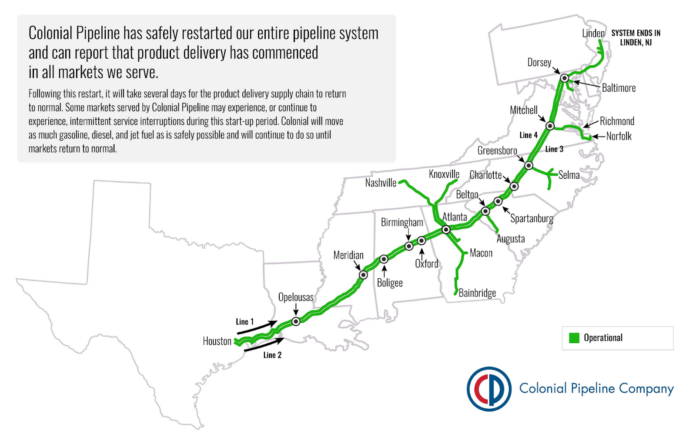By Seth Gellman
Many have criticized the national infrastructure in the United States in the past, arguing that it was vulnerable to cyber attacks. This vulnerability was exposed last week, as the Colonial Pipeline, a massive pipeline that transports millions of gallons of gasoline and other fuel from Houston to New York, shut down over a ransomware attack.
Colonial said that they temporarily shutdown systems on Friday, May 7, after learning about the issue. The company also said that they hired a third-party cybersecurity firm to investigate the hack. The US Cybersecurity and Infrastructure Security Agency is also working with the company to find the root of the problem, and appears to have found the culprit. The government claimed that the attack was carried out by organized crime group DarkSide.
This follows a series of cyber attacks on US companies, including the SolarWinds intrusion campaign that compromised several US agencies and private organizations and Microsoft Exchange hack that revealed tens of thousands of servers, and an unsuccessful cyber attack in Florida that attempted to close down a water plant.
According to a White House spokesperson, Biden was informed of the shutdown on Saturday morning, the day after the shutdown.
Colonial announced the resumption of operations on Wednesday, May 12. Despite the resumption of operations, the shutdown led to a panic as gas prices rose and people hoarded gas. Gas prices in Georgia and other states rose eight to ten cents per gallon, numbers seldom seen in scenarios other than a hurricane.
As the pipeline resumes operation, there will be increased scrutiny over infrastructure and the stability of it. As cyber attacks become more common, the government will keep a close eye on the infrastructure to make sure that another scare doesn’t happen. After all, according to the chief product officer at Sophos, Dan Schiappia, “Infrastructure is an easy – and lucrative – target for attackers.

